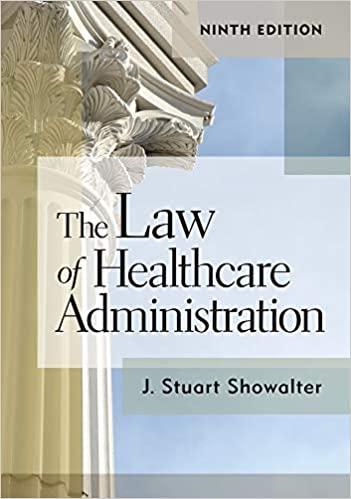The plaintiff in this action for a declaratory judgment is a nonstock corporation which for many years
Question:
The plaintiff in this action for a declaratory judgment is a nonstock corporation which for many years has owned and operated a voluntary general hospital in a complex of buildings located on a 120-acre tract of wooded land about one mile from the center of the city of Torrington. The land was acquired under a deed of trust providing that the premises thus conveyed “are to be held and used by said grantee for the purpose of maintaining and carrying on a general hospital and, if a majority of corporators so elect, a training school for nurses in connection therewith may be established, and for no other purpose whatsoever.” The deed of trust in question, executed in 1917, specifically provided that
“if the land herein granted shall cease to be used for the [stated] purposes, title . . . shall thereupon pass to and vest in said town of Torrington . . . to be used forever as a public park.” [A state statute later chartered the hospital subject to the “terms, conditions, restrictions and provisions” of the deed of trust.]
Plaintiff [now wants to erect] a medical office building on the hospital grounds
[because it] would be of great convenience and advantage both to the individual doctors and to the hospital. . . .
. . . [However,] various questions have arisen with respect to the right, power and authority of plaintiff, under the terms of said deed of trust and special act, to proceed with such a project. . . . The specific questions which the court is requested to answer . . .
are
(a) whether plaintiff is authorized . . . to construct and operate, as an integral part of its general hospital complex, a medical office building for members of its medical staff;
(b) whether such a medical office building may, under the terms of the aforesaid deed of trust, be located on a portion of the land held by plaintiff thereunder;
(c) whether . . .
the plaintiff is authorized and empowered to lease . . . a portion of the land included in the aforesaid deed of trust [to a subsidiary corporation that will operate the medical office building]; [and]
(d) whether, in addition to offices and office suites for members of plaintiff
’s medical staff, said building may contain facilities related to or supporting such offices and suites, such as medical laboratories, pharmacies and dispensaries.
The court, after hearing the evidence and the arguments of counsel with full participation by counsel representing the only interested parties, namely, the attorney general of the state of Connecticut, as representative of the public interest in the protection of trusts for charitable uses and purposes . . .
and the city of Torrington, contingent beneficiary, has no hesitation in answering all four of the questions posed in the affirmative. It is clear . . . that the proposed project would materially aid the plaintiff in more efficiently carrying out the stated purposes of the trust deed under which it was founded. . . . It is equally clear from the extremely impressive testimony of [the president of the AHA and another witness] that the modern trend is almost universally toward the practice of having nonprofit hospitals provide physicians’
private offices for rental to staff members, either in the hospital buildings themselves or on the hospital grounds. . . .
Discussion Questions
1. Why is the state attorney general an “interested party” to these proceedings?
2. What is a settlor?
3. What are cypres principles?
4. How does this case enhance your understanding of the limits of corporate power?
Step by Step Answer:






